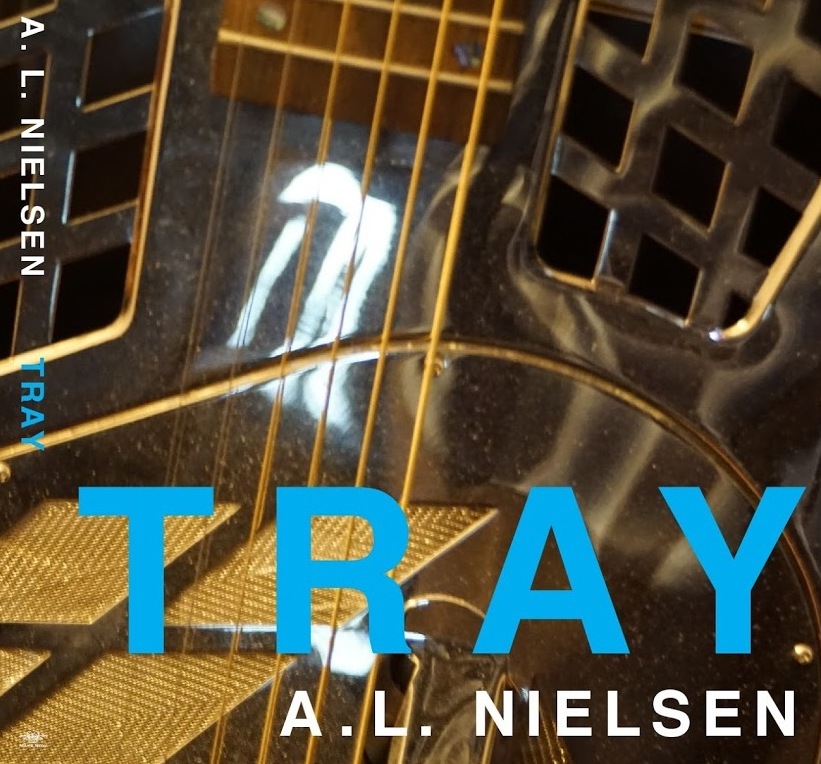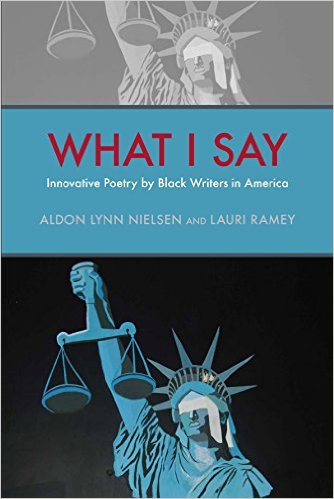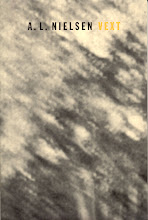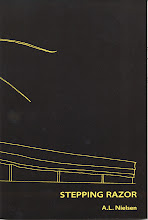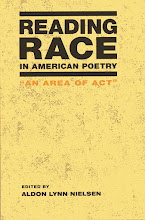

I still remember with great clarity a conference panel some ten years ago on technology and pedagogy, in the course of which an all too smug colleague from another campus brandished his prized early-adopter electronic book at us and allowed as how those of us who still used WordPerfect and/or read actual- physical -codex books were almost hopelessly retrograde.The gadget he so lovingly waved at us was unwieldy, had a bad screen and, far more important, had no content on it that I could imagine myself caring about. (By the way, I continue to use WordPerfect.)
Still. I watched the development of the e-book from a safe distance, hoping all the while that the consumer electronics industry would one day pay attention to how people use their books. The situation was analogous to what I saw happening in the area of field recording. Throughout the era of tape, nearly all consumer electronics stores such as Good Guys and Circuit City stocked high end (but still affordable) portable tape recorders, the best and most popular being the Marantz deck and the Sony Walkman Pro. Either of these was capable of producing broadcast quality recordings in even the most challenging sound environments. But for some reason the industry paid no attention to this segment of the market during the long march to digital. Sure, profesisonals could get very pricey equipment from their specialist suppliers, but the rest of us were left staring dumbly at those racks of hideous "digital voice recorders" that all the stores display, most of which are really only good for recording a reminder to yourself to get bread on the way home from work. They are the digital equivalent of those once ubiquitous tape recorders with the row of big buttons and the pop-up cassette that produced sound just this side of unbearable. But finally, in the past two years, the industry has brought forward several really good flash memory recorders that make professional standard results available at prices the ordinary recordist can manage. The best of these are the Edirol R09 and the Zoom H2. Sony makes a great one as well, but theirs costs $2,000, so few of us will be using that device to record poetry readings.
Meanwhile, back in book world, little was happening. There were two major problems. (1) The electronic book industry for the most part did not make texts I cared about available. (2) The devices and their software sucked.
So it was with real interest that I read news reports of the advent of new readers based on electronic paper technology. I bought the Sony e-reader after reading several positive reviews and seeing one in a store. It was not known then that the Amazon Kindle would be available for Christmas this year. I now have both, and here's the lowdown.
There still isn't a lot of material I care about available, though there is much more than there had been. BUT, and this is what moved me to purchase these things, you can now place your own content on them. As someone who has been lugging manuscripts that I review for university presses around on airplanes, this alone makes these devices a godsend. I can now get that 900 page manuscript they want me to look at in electronic form and carry it in my briefcase or even in my coat pocket. And I can load the thing up with my own manuscripts, or any text that anybody can give me in a usable format.
Both devices are easy to set up and a delight to use. I'd give the edge to the Amazon Kindle, but here's my comparison:
The Sony e-reader doesn't have as many books in its on-line store, but is much easier to use with files you don't buy from Sony. As long as the file is in DOC, RTF or PDF format, you just drag the file into the Sony library software and drop it. That's it. Books you do buy from Sony download almost instantly and I have never once encountered any problems with the store or the software.
The downside (and this is one of the reasons I had never bought any earlier electronic books): while you can bookmark the text, you can't highlight or annotate it. I have been looking longingly at a similar device marketed in Europe that does permit highlighting and annotating, but that sucker costs $700 US, way too much for one of these things.
But that is also why I got so excited when I saw the list of features for the Amazon Kindle. You can highlight any text (and when you highlight it the selection is also automatically added to your "clippings" file, which means that you can pop it onto your computer and paste it into that essay you're writing as a quotation, or email it to someone you're having discussions with.) Some early-adopters have complained about the small keyboard that the Kindle has beneath its screen to enable all this note-making, but I haven't had any trouble with it at all. (There are also early complaints about the Kindle's button layout -- True enough, you will accidentally turn the page and curse it several times in your first day of use -- but once you get used to it, you probably will forget you ever had that problem.)
AND, the kindle has wireless technology. With your purchase, you're signed into a Sprint account that comes with no additional charges. This means that you can download books while sitting in the airport without having to pay for internet access. It also means that you can have subscriptions to participating papers and magazines delivered straight to your reader. This is a blessing beyond belief for people like me who have never been comfortable reading for long periods from my laptop. As someone who travels a great deal, and who lives part of the year in a town where I can't get any good newspaper delivered to my door on a daily basis, I would have bought the Kindle just for this feature. Every morning when I wake up, my New York Times and Washington Post are already waiting for me on my Kindle; at home, at the airport, in hotels. I've also subscribed to The Nation and the Atlantic, which can be had in this format for a pittance. It's true you don't get all the graphics of the hard copy (and I do miss the editorial cartoons), but that's a truly minor annoyance.
You can still put your own documents on the device, but you have to email them to yourself so that they can be converted to Kindle documents. And that's why I'll still be using my Sony e-reader quite a bit.
Both Sony and Amazon should provide better covers for these things. The one that comes with the Sony is awkward, but there's a much better one you can buy that I'm quite happpy with. The cover that comes with the kindle is cheap looking on the inside, but it turns out to hold the device far more securely than it looks like it will.
One odd thing Amazon's designers did was to put the power and wireless buttons on the back of the thing. This means that you have to take it out of its cover any time you need to turn it off. Most of us who have subscriptions will probably just leave it on all the time, but we still have to access these buttons when flying etc. I hope the next model will move these to the front or side. The Sony's power switch is conveniently located on the side.
There are two general drawbacks remaining with both devices, drawbacks I hope will be addressed soon. There is still, even at Amazon, not enough content beyond the usual run of best sellers. Amazon does get the edge here, as you can find work by Derrida and Wittgenstein, poetry by Ashbery, collections of literary criticism, etc. But then the pricing issue comes to the fore. You're in great shape if you want a copy of something like Tuesdays with Morrie or The DaVinci Code. Most books sell for just under ten bucks, or about what you'd pay in a normal used book store. The big issue for me is that many of the more specialized books, especially from university presses, cost a lot more. If I have to pay $29.95 and up for a book, I damn well want the physical object to shelve in my library. I suspect (heck, I know) the problem here is with the publishers, not with Amazon. Publishers will kill this potential revenue stream if they don't wake up. I would purchase MOST of my books of criticism, philosophy etc. in electronic format if the pricing was similar to that of commercial presses (roughly half price). Very few people will pay nearly the same price for the virtual book as they would pay for the hard copy book. If the publishers will give an inch on pricing, I think they will find an eager market waiting for them.
The other general drawback has to do with the amount of trust we have to place in the industry to use this technology. When I buy a book, I can read it forever no matter what happens to the publisher. When I buy the electronic book, I have to pray that the company will stay in business and will continue to support the software. Given recent history, that's not a very comforting proposition.
That's also a reason to hope that Amazon will get right and handle files the same way that Sony permits. There is no reason that a user should have to go through any conversion or emailing at all. The Kindle needs to allow users simply to drag and drop any file in common formats like DOC, RTF or PDF and stop this nonsense about conversion. If Amazon makes that change soon, then Sony will be foreced to play catch-up.
Bottom line: the Amazon Kindle's wireless feature makes it the hands down winner. It's a beautiful machine. I just finished reading DECONSTRUCTION AND PRAGMATISM on it and am eagerly awaiting the next issue of THE NATION.
I'll still use my SONY, primarily for carrying and reading texts not purchased from their store. But if Amazon would just make that one alteration, I'd be selling my Sony e-reader on ebay. Publishers and the content providing industry need to wake up to the realities of today's community of users. They cannot afford to make the same horrific mistakes the music industry has made. Make the texts easy to use and certain to remain readable no matter what, and most of us will happily increase our purchases. Someone who loves reading enough to buy one of these machines is already buying lots of books. A sensible approach to pricing and file management will lead to more purchases. I just bought Claire Colebrook's IRONY -- and there's the new NATION showing up now --







